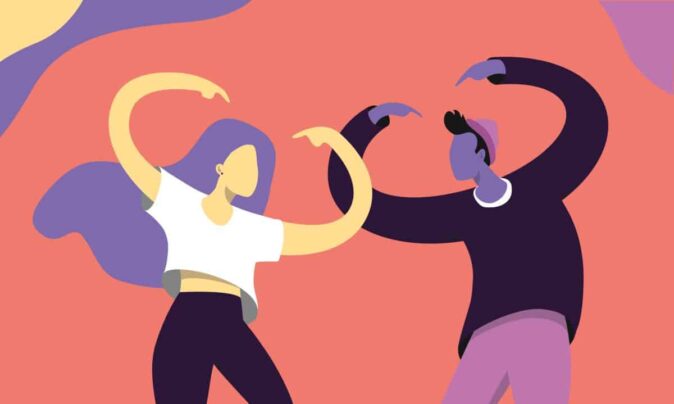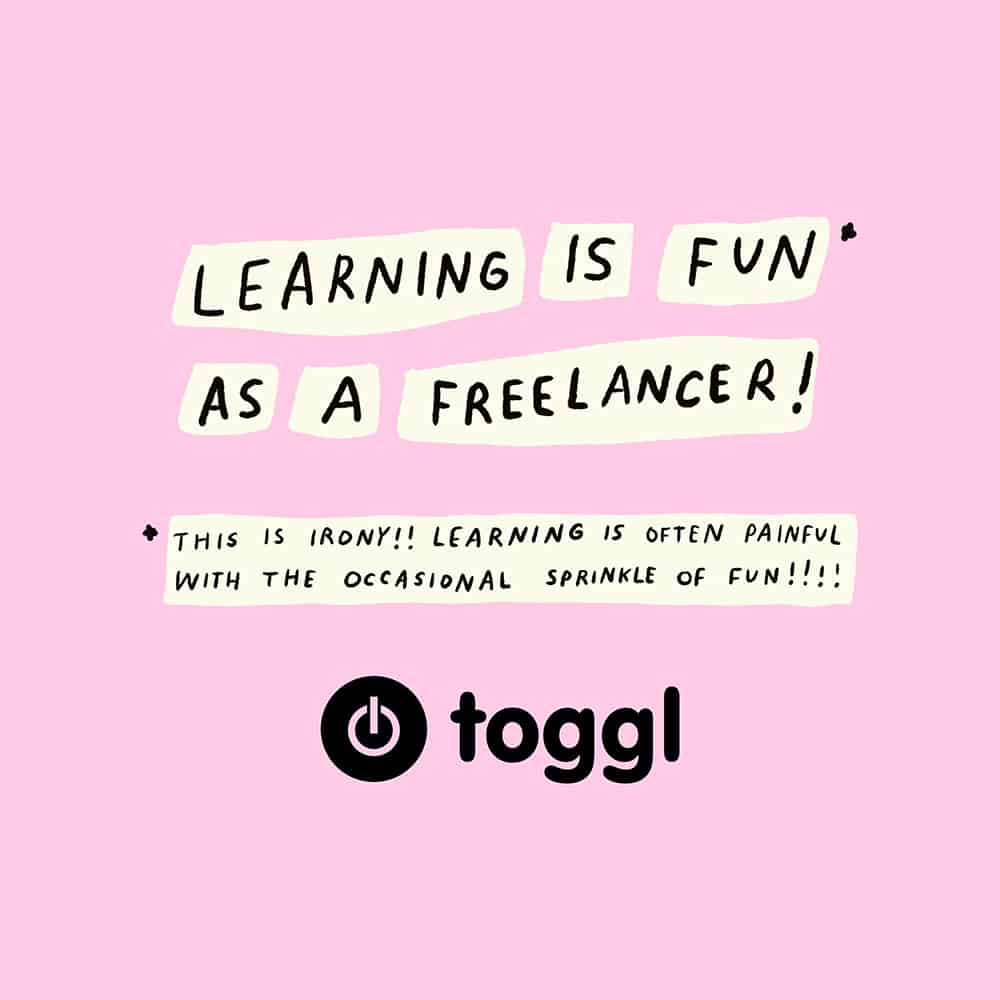
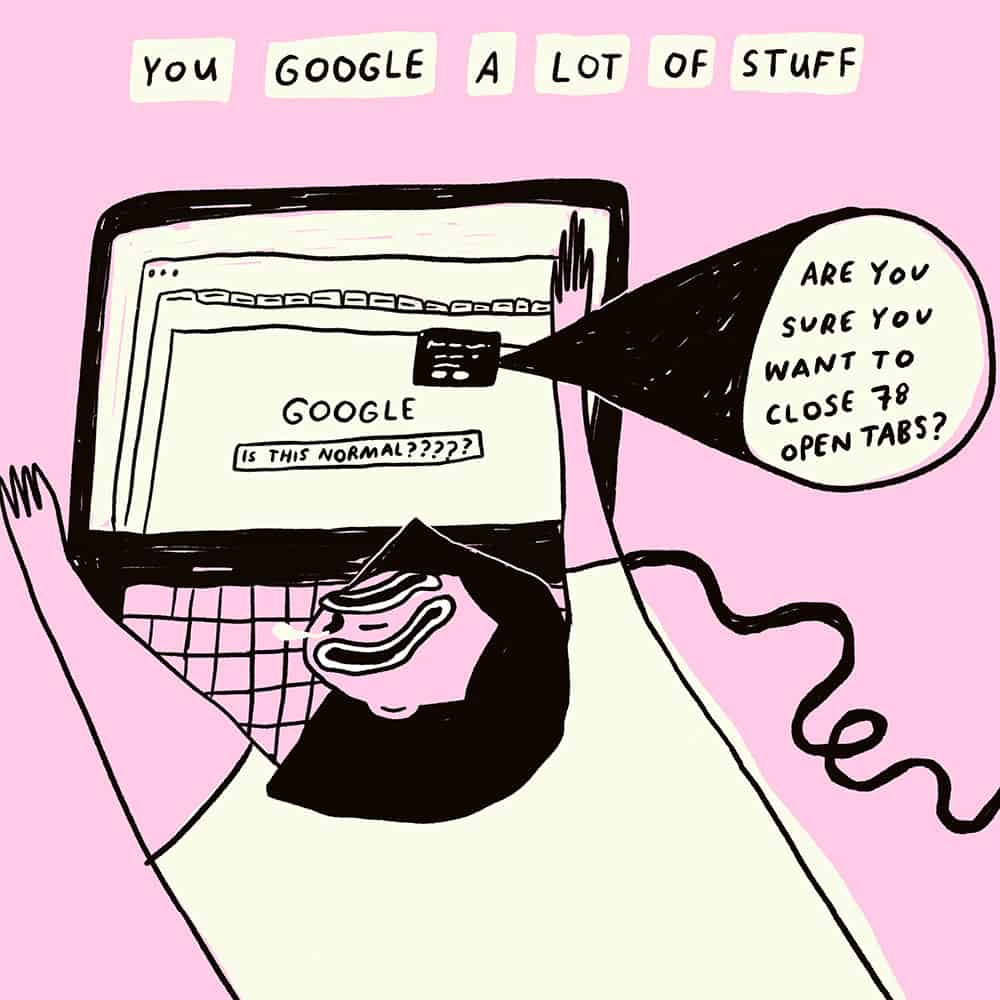
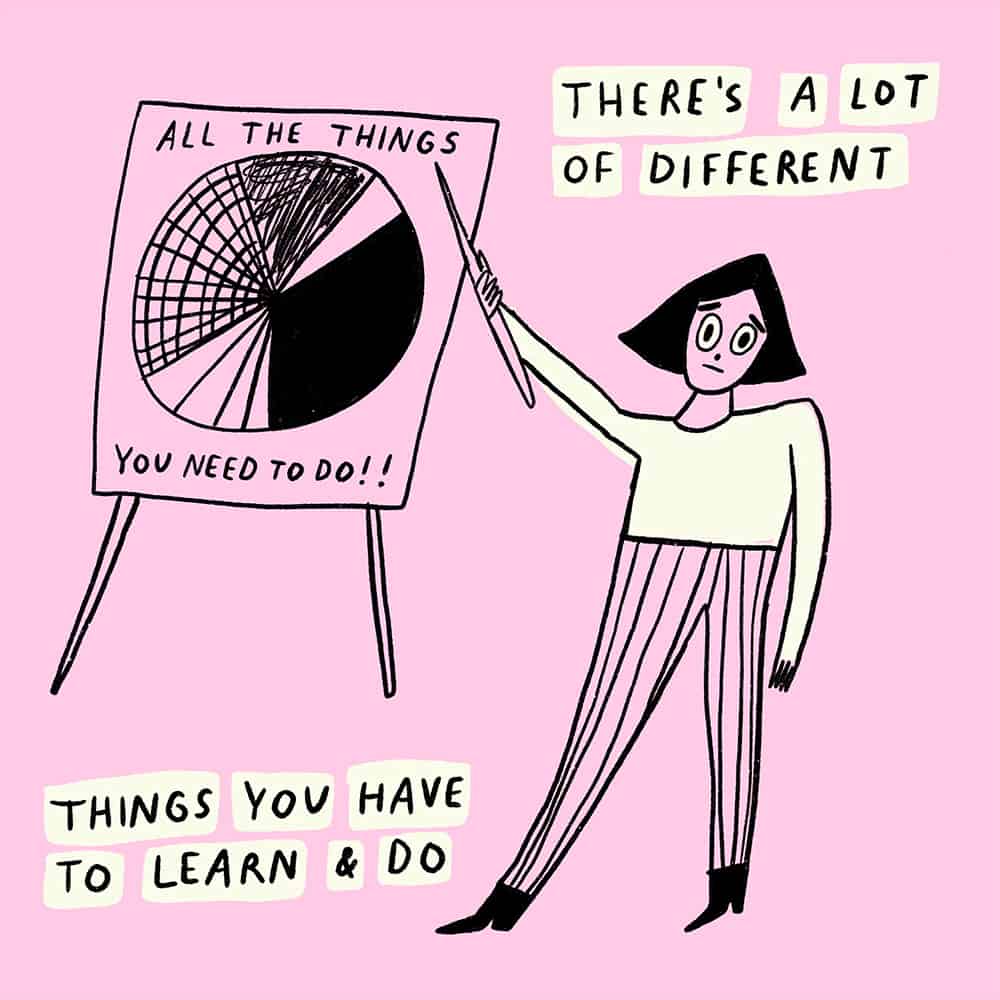
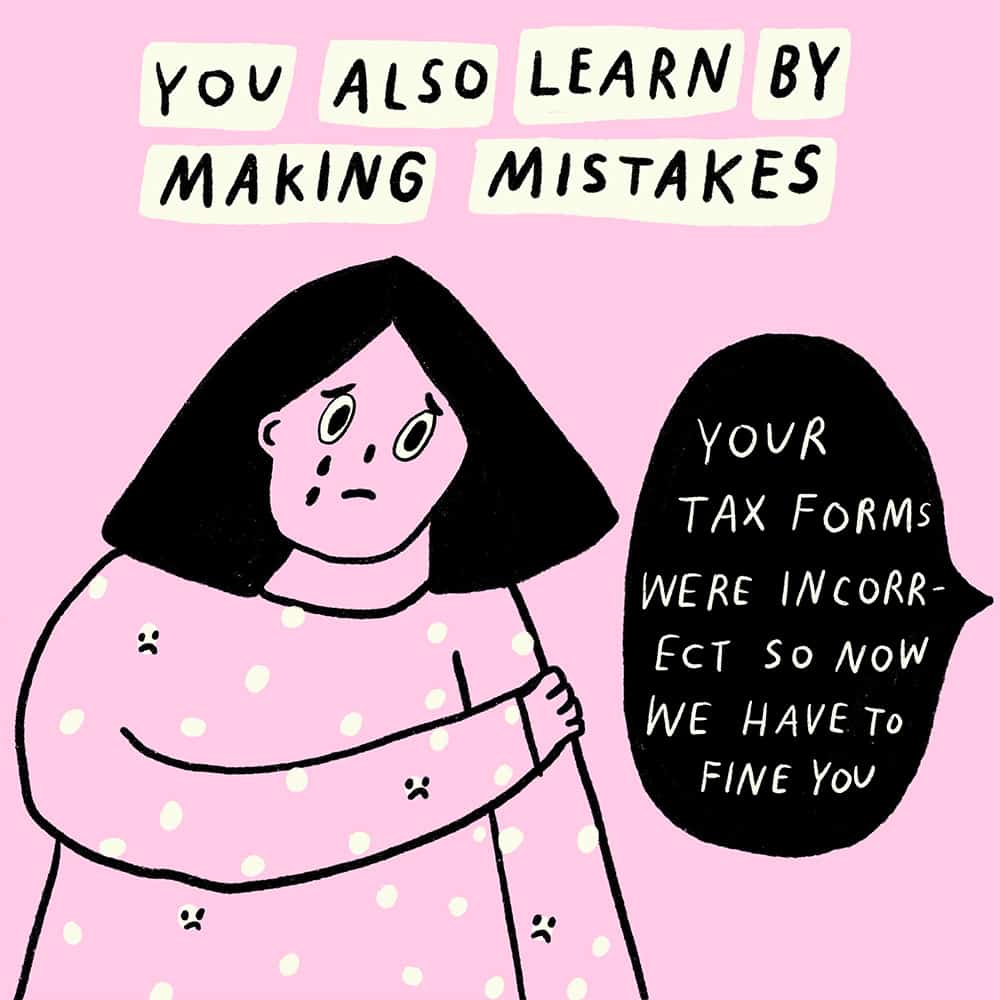
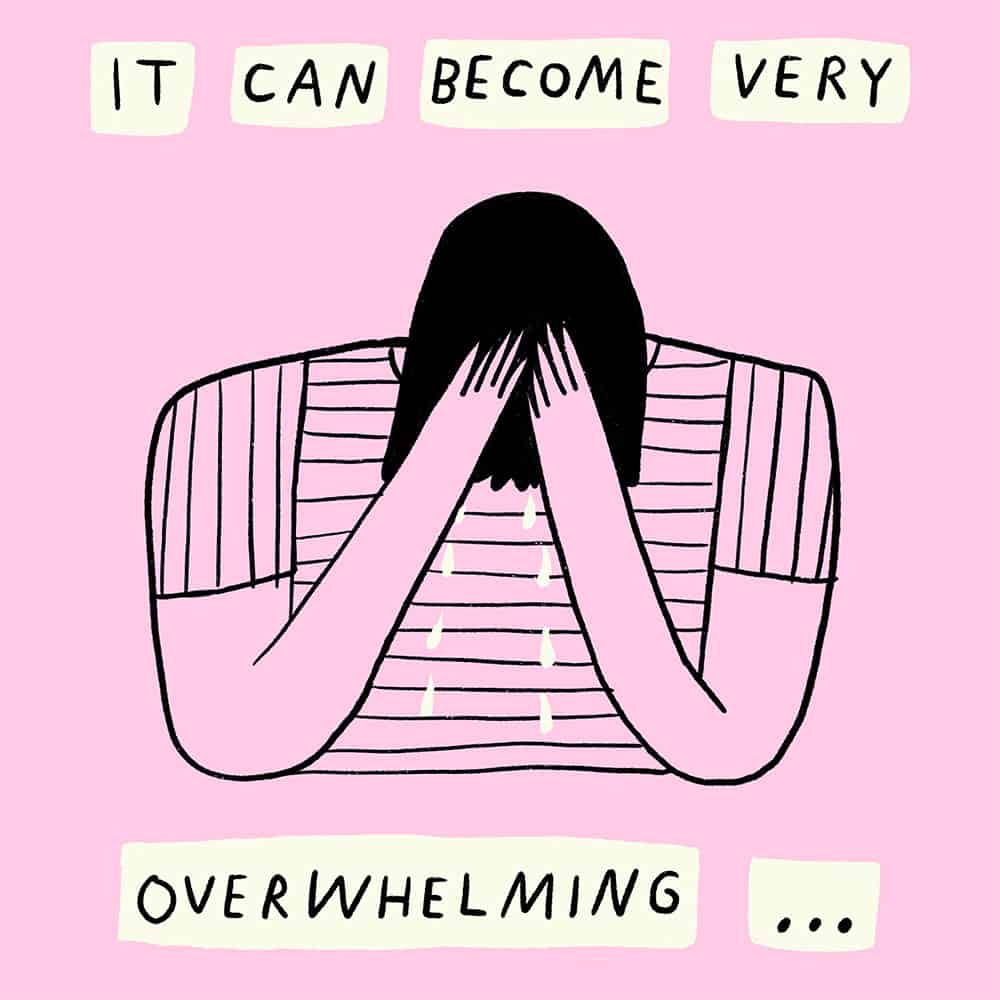
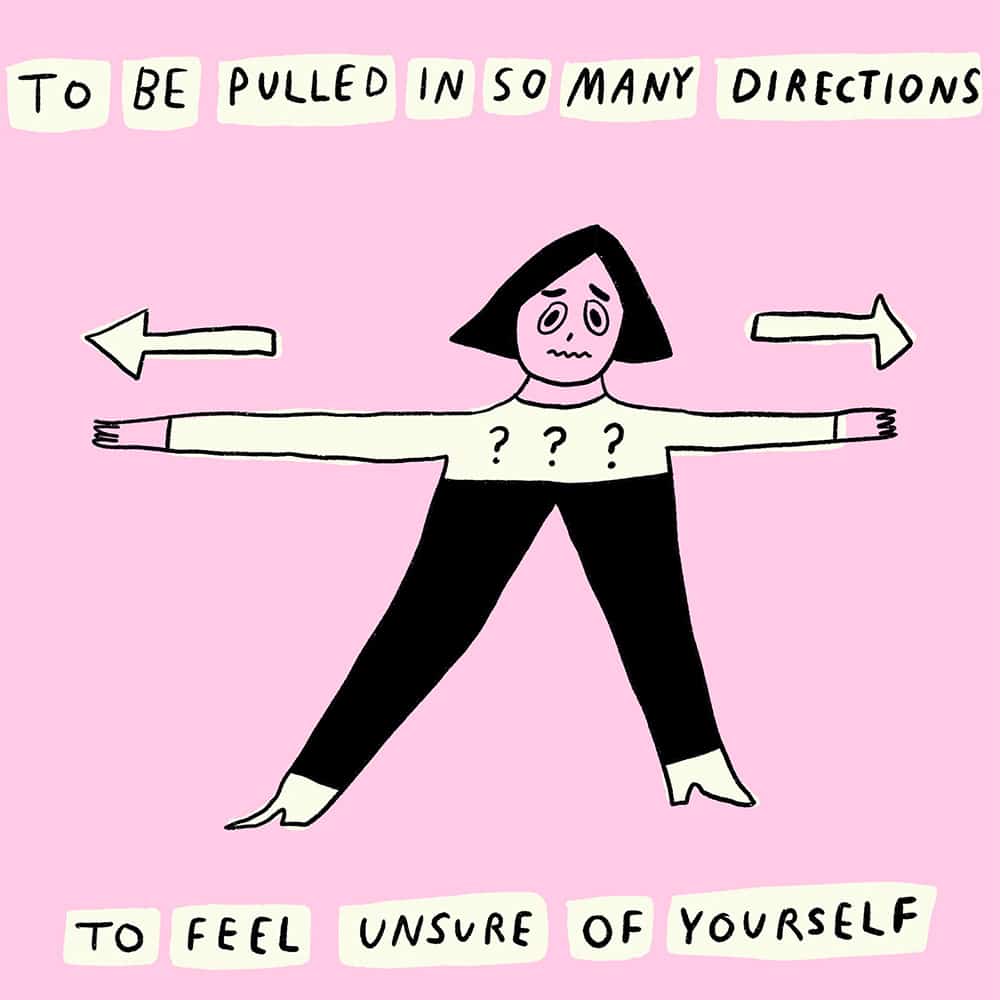
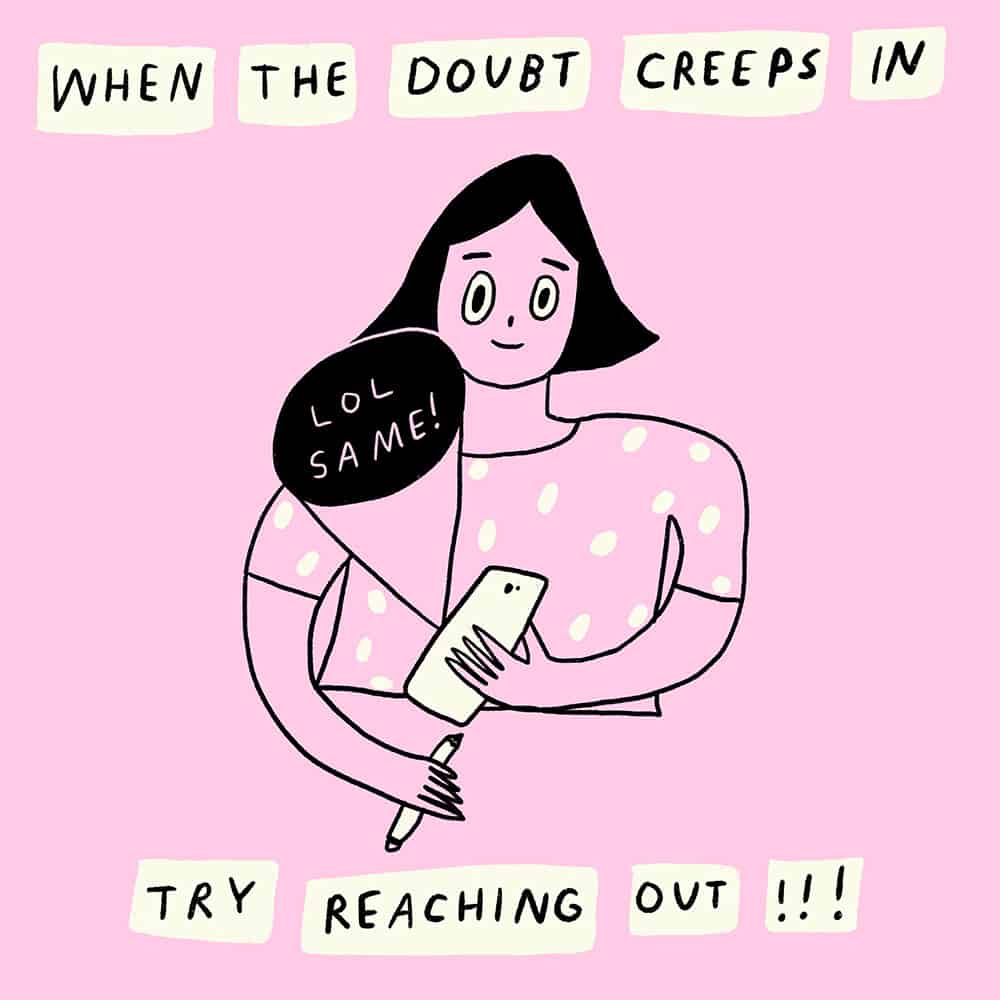
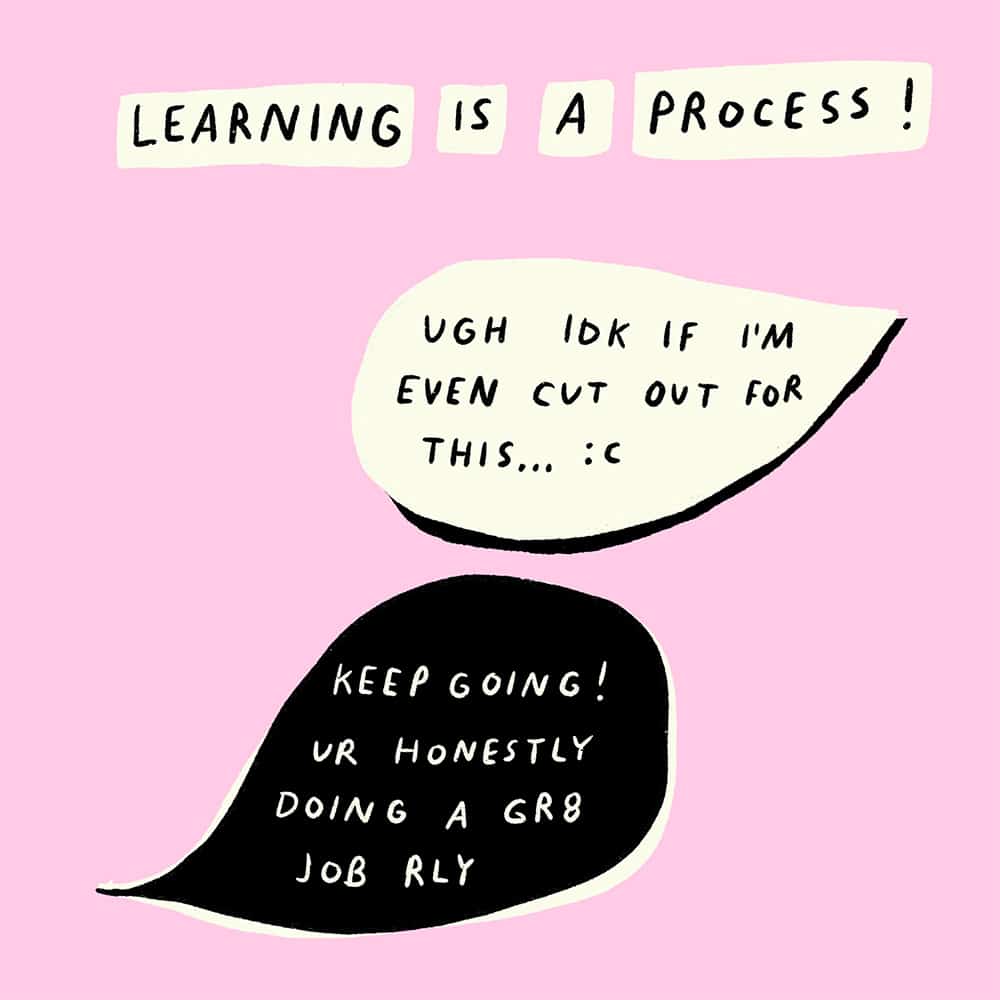
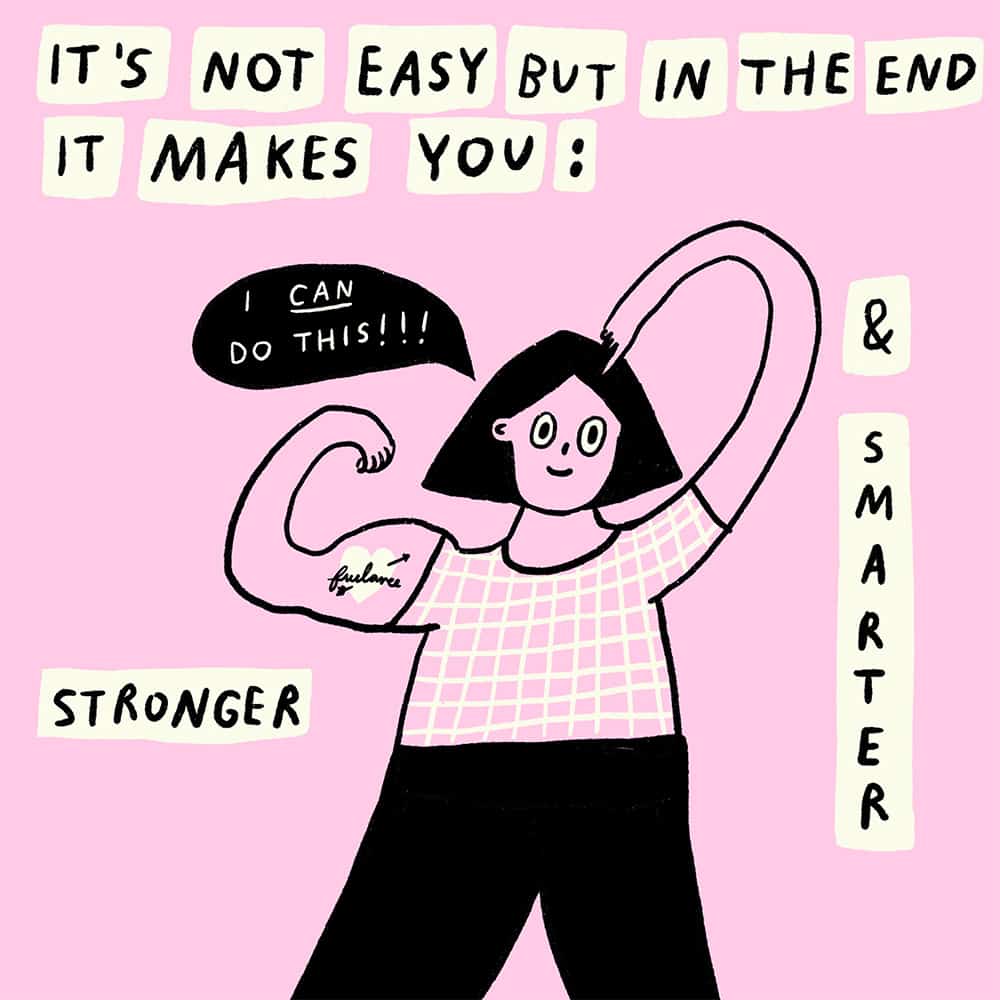
This comic was created by Kristen Barnhart who spends her days drawing and screenprinting at her home in Denton, Texas.
What should be on your freelance checklist?
When you start as a freelancer, there is a mountain of things you must learn. The early years of freelance lives are filled with challenges, from taxes to maintaining client communication. That’s why you should make a learning checklist. What your checklist consists of will differ depending on your job. But no matter your work, these 3 things are absolutely, 100% essential to learn.
Learning how to price a job
Figure out what you’re actually making per hour. Scenario time: Say you are hired by 2 clients. Client A is paying $500, and Client B is paying $1000. You’ve got an idea of the time each project will take, and you plan accordingly.
You do the work for Client A and send it in. The work is accepted without revision. Because you’re a savvy freelancer and you were tracking how long the job took, you know that you got paid $40 per hour! Good job!
Client B is a bigger job which is why they’re paying more. You budget twice the amount of time towards the project. After sending in work, they request a ton of revisions. They’ve also been checking in almost every day to make sure you’re making it pop. Since you’ve been tracking your time, you know that between the project work, the client communication, and the revisions, you’ve only made $13 per hour. Ugh.
If you didn’t track your time and just looked at a spreadsheet, you would assume that Client B is bringing in more money when, in actuality, it’s Client A. You should always know what you’re making on an hourly basis. It’ll help you make better business decisions.
Need more help?
Ask for more money, always. It can be nerve-wracking to negotiate if you’ve never done it before. But you should learn to do it and then do it all the time. Many freelancers don’t ask for more money because they worry the request will scare away clients. However, if your clients are scared away by a professionally worded negotiation, chances are they weren’t going to be a great client anyway.
In most scenarios the worst outcome is the client saying no, in which case, you’re earning the same amount you previously would have. If the client says yes, then you get a raise. Yay, you! Always, always ask. Always.
Need more help?
Learning how to keep a community
Find your people. We all need community. It doesn’t matter if you’re not a ‘people’ person. It doesn’t matter if you went freelance to get away from people. It doesn’t matter if you work better alone. Humans need humans.
Going days on end without human connection is unhealthy. Sure, you’re likely spending off time with family and friends but connecting with others who are going through similar work experiences will help foster a healthier work environment (even if your work environment is just you and your cat.) It’s a different kind of connection that has many possible upsides.
Confused about how to price a project? Ask someone in your freelance community. Need to know if a client is worth working for? Ask someone in your freelance community. Dealing with deadline stress? You know what’s coming: ask someone in your freelance community.
Your community can be digital or in-person, small or large. However, a caveat about digital communities: the digital community you choose should be dialogue based. What do I mean by that? Don’t select Instagram as your primary digital community.
Instagram can be great for a plethora of things, including connecting with freelancers who do similar work. However, it invites unhealthy comparisons. Regularly seeing other peoples work without any context is a one-sided story. You’re seeing the greenest grass of someone’s work life. Meet people there if you must but take communication out of the app. Tools like Slack, Facebook Chat, text message groups, and even email threads are great for dialogue based communication.
Need more help?
- You’re Doing Great: The DIY career support group that anyone can run
- Slack List: A handpicked selection of top Slack communities
Learning how to manage your money
Budget for the off times. A significant trade-off between working freelance and working as an employee is the steadiness of income. You’ll likely larger receive large lump sum payments which makes it feel like you’re making more money, but jobs are precarious. You could work non-stop for a month only to make no money the next.
Plan for ebbs and flows. Track your cash flow. This will show you if there are busier times of the year and help you plan for the future.
Need more help?
If you can help it, don’t live paycheck to paycheck. It might feel restrictive at first, but the peace of mind gained when you don’t need to worry if the next payment will come in before rent is due is worth more than anything money can buy.
Need more help?
Emma Murray makes content and content and even more content. She believes everyone has a few good words in them. She also does photojournalism here: https://www.emmakathleenmurray.com/

